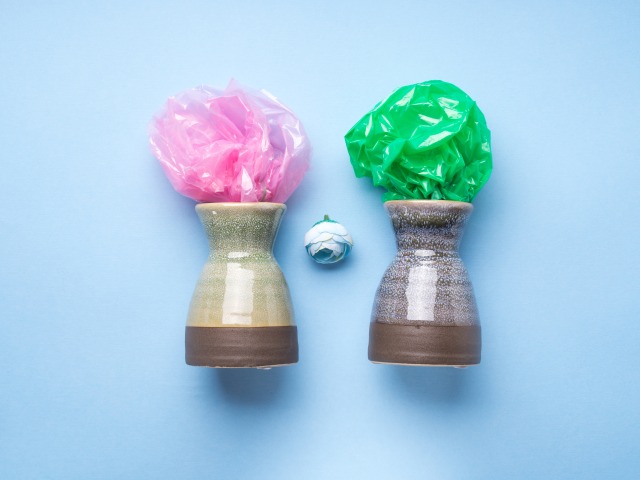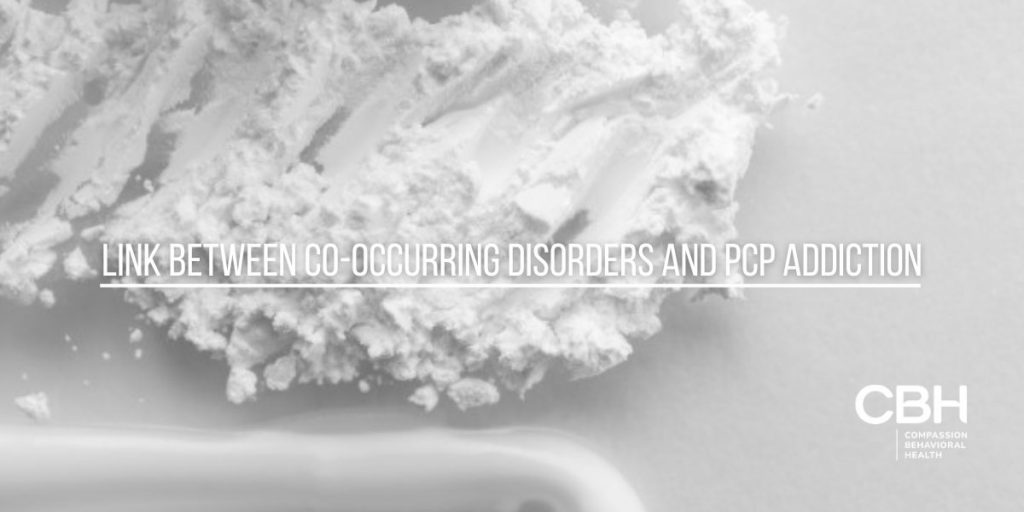PCP, also known as phencyclidine, was originally developed as an anesthetic but quickly gained notoriety for its severe psychological effects, leading to its classification as a Schedule II substance. Diving into the intricate world of co-occurring disorders and PCP addiction, this article unpacks the complexities of each and explores their interconnection. It delves into what co-occurring disorders are, the basics of PCP addiction, how co-occurring disorders intersect with PCP addiction, treatment approaches, and prevention and early intervention strategies. By understanding this link, individuals and their loved ones can gain valuable insight into the complexities of co-occurring disorders and PCP addiction, ultimately leading to informed decision-making and better outcomes in terms of prevention, treatment, and overall well-being.
Defining Co-Occurring Disorders
Co-occurring disorders, also known as dual diagnosis, refer to the presence of both a mental health disorder and a substance use disorder in an individual. This coexistence can be more common than one might expect, with research suggesting that individuals with mental health disorders are more likely to develop substance abuse issues. Co-occurring disorders present unique challenges as they often exacerbate each other’s symptoms and complicate treatment strategies.
The Nature of Co-Occurring Disorders
Co-occurring disorders can manifest in various ways, with each individual experiencing a unique combination of mental health and substance abuse issues. Some common mental health disorders that are frequently seen in conjunction with substance abuse include depression, anxiety, bipolar disorder, and post-traumatic stress disorder (PTSD). The interaction between these disorders can be complex, with substance abuse often used as a means of self-medication to alleviate symptoms or cope with challenging emotions.
For example, individuals with depression may turn to substances such as alcohol or drugs to temporarily numb their feelings of sadness and despair. Similarly, those with anxiety may use substances as a way to calm their racing thoughts and alleviate their constant worry. However, while substances may provide temporary relief, they ultimately worsen the underlying mental health condition, creating a vicious cycle of dependency and worsening symptoms.

Common Types of Co-Occurring Disorders
There are several common types of co-occurring disorders that can occur alongside PCP addiction. One example is the co-occurrence of PCP addiction and major depressive disorder. Individuals struggling with major depressive disorder may turn to PCP as a way to temporarily escape their persistent feelings of sadness or hopelessness. Similarly, co-occurring PCP addiction and generalized anxiety disorder may manifest as a means of coping with excessive worry and fear.
Another common co-occurring disorder is the combination of PCP addiction and bipolar disorder. Bipolar disorder is characterized by extreme mood swings, ranging from manic episodes of heightened energy and euphoria to depressive episodes of profound sadness and lack of motivation. Individuals with bipolar disorder may use PCP as a way to self-medicate during depressive episodes, seeking temporary relief from their emotional lows.
The Basics of PCP Addiction
PCP, also known as phencyclidine, is a powerful dissociative drug that can induce hallucinogenic effects. It is classified as a Schedule II controlled substance due to its high potential for abuse and the associated risks it poses to an individual’s physical and mental well-being. PCP is typically found in various forms, including powders, capsules, and tablets, and is commonly ingested orally, snorted, or smoked.
PCP acts by disrupting the actions of neurotransmitters in the brain, particularly affecting the glutamate system. This interference leads to the distorted sensory perceptions and altered states of consciousness experienced by users. The drug’s effects can vary widely depending on the dosage and individual tolerance levels, with some users reporting feelings of invincibility and detachment from reality.
What is PCP?
PCP was initially developed as an anesthetic medication, but its use declined due to its severe side effects. Despite its legal restrictions and well-documented risks, PCP remains a sought-after recreational drug due to its mind-altering effects. The drug’s dissociative properties can induce hallucinations, distort perceptions of reality, and lead to a detachment from both physical sensations and emotional experiences.
Long-term use of PCP can have detrimental effects on cognitive function, memory, and decision-making abilities. Chronic users may experience persistent hallucinations, mood disturbances, and even psychotic symptoms. The unpredictable nature of PCP intoxication can also increase the risk of accidents, self-harm, and dangerous behaviors.
The Path to PCP Addiction
PCP addiction often begins with experimentation, curiosity, or recreational use. However, due to the drug’s addictive nature and the powerful euphoria it can produce, casual use can quickly escalate into a compulsive behavior. The rewarding effects of PCP can reinforce the user’s desire for continued use, leading to the development of dependence and addiction.
Individuals struggling with PCP addiction may face challenges in their personal relationships, work or school performance, and overall well-being. Seeking help from healthcare professionals, addiction specialists, and support groups is crucial in addressing the complex physical and psychological aspects of PCP addiction. Recovery from PCP addiction often involves comprehensive treatment approaches, including therapy, counseling, and medication management, to support individuals in achieving long-term sobriety.
The Intersection of Co-Occurring Disorders and PCP Addiction
When co-occurring disorders and PCP addiction intersect, the challenges faced by individuals become more complex. Mental health disorders can influence the likelihood of PCP addiction, and PCP addiction can exacerbate or even contribute to the development of mental health disorders. Understanding this connection is essential in developing effective treatment approaches that address both the substance abuse issue and the underlying mental health concerns.

The Role of Mental Health in Substance Abuse
Mental health disorders can significantly impact an individual’s susceptibility to substance abuse. The presence of untreated mental health issues can increase the likelihood of seeking solace in substances like PCP to alleviate emotional distress, self-medicate symptoms, or regulate mood. The temporary relief provided by the substance may create a vicious cycle, as the individual becomes reliant on PCP to manage their mental health symptoms.
The Impact of PCP Addiction on Co-Occurring Disorders
PCP addiction can worsen existing mental health disorders or potentially trigger the onset of new ones. Regular PCP use can disrupt biochemical processes in the brain, leading to imbalances in neurotransmitters and worsening symptoms of various mental health conditions. For individuals already struggling with co-occurring disorders, PCP addiction intensifies the complexity of their symptoms and further impedes their overall well-being.
Furthermore, the intersection of co-occurring disorders and PCP addiction can have profound social consequences. Individuals grappling with both mental health disorders and PCP addiction often face stigmatization and isolation from their communities. The societal misunderstanding and judgment surrounding these issues can hinder their ability to seek help and support, exacerbating their struggles.
In addition to the social impact, the physical health of individuals dealing with co-occurring disorders and PCP addiction is also at risk. PCP use can lead to a range of health complications, including respiratory problems, cardiovascular issues, and kidney damage. When combined with the already compromised health of those with mental health disorders, the consequences can be severe and potentially life-threatening.
Moreover, the financial burden of co-occurring disorders and PCP addiction cannot be overlooked. The cost of treatment for both mental health disorders and substance abuse can be substantial, placing a significant strain on individuals and their families. The need for comprehensive and integrated care that addresses both aspects of their condition becomes crucial in order to provide effective and sustainable support.
Treatment Approaches for Co-Occurring Disorders and PCP Addiction
Effectively treating co-occurring disorders and PCP addiction requires a comprehensive and integrated approach. Addressing both aspects simultaneously is crucial to achieving long-term recovery and maintaining overall well-being. Two common treatment approaches for co-occurring disorders and PCP addiction are an integrated treatment approach and medication-assisted treatment.

Integrated Treatment Approach
An integrated treatment approach involves providing simultaneous treatment for both the mental health disorder and the substance use disorder. This holistic approach recognizes the interplay between the two conditions and tailors treatment plans accordingly. It typically combines therapy, medication management, support groups, and other evidence-based interventions to address the complex needs of individuals with co-occurring disorders and PCP addiction.
Medication-Assisted Treatment
Medication-assisted treatment (MAT) may be suitable for individuals with co-occurring disorders and PCP addiction. MAT utilizes medications, such as antidepressants or antianxiety medications, to alleviate the symptoms of mental health disorders and support recovery from PCP addiction. This approach is often accompanied by counseling and behavioral therapy to address the psychological aspects of the co-occurring disorders and addiction.
Prevention and Early Intervention Strategies
Preventing the development of co-occurring disorders and PCP addiction is essential for promoting mental health and overall well-being. Early intervention strategies aim to identify potential risk factors, recognize the signs of co-occurring disorders and PCP addiction, and provide appropriate support and resources to individuals in need.
Recognizing the Signs of Co-Occurring Disorders and PCP Addiction
Recognizing the signs of co-occurring disorders and PCP addiction is crucial in order to provide timely intervention and support. These signs may include changes in behavior, sudden mood swings, social isolation, deteriorating physical health, and neglect of responsibilities. Being aware of these red flags can help individuals and their loved ones take proactive steps towards seeking help and accessing appropriate treatment options.
Intervention and Support Systems
Intervention strategies can vary depending on the specific situation and the needs of the individual. They may involve gathering supportive friends and family members, consulting with addiction specialists, or seeking professional guidance from counselors or therapists specializing in dual diagnosis. Establishing a strong support system is essential in providing ongoing assistance, encouragement, and accountability for individuals working towards recovery from co-occurring disorders and PCP addiction.
In conclusion, understanding the link between co-occurring disorders and PCP addiction is crucial in effectively addressing and treating these complex issues. Through awareness, intervention, and appropriate support systems, individuals can pursue healthier, more fulfilling lives free from the burdens of co-occurring disorders and substance abuse. By embracing comprehensive treatment approaches and early intervention strategies, we can make significant strides in promoting mental health, preventing addiction, and fostering overall well-being.
PCP Addiction and Co-occurring Disorders Treatment at CBH

If you or a loved one is navigating the complexities of co-occurring disorders and PCP addiction, Compassion Behavioral Health is here to offer a beacon of hope. Our specialized team is committed to providing personalized treatment plans that cater to your unique journey towards healing. With our comprehensive care levels and dedication to fostering long-term recovery, we’re ready to support you in achieving optimal physical and mental health. Conveniently located in South Florida, our Hollywood rehab center is a serene environment conducive to rehabilitation. Don’t hesitate to take the first step towards reclaiming your life. Call Us Today and let us guide you through a transformative recovery process.



